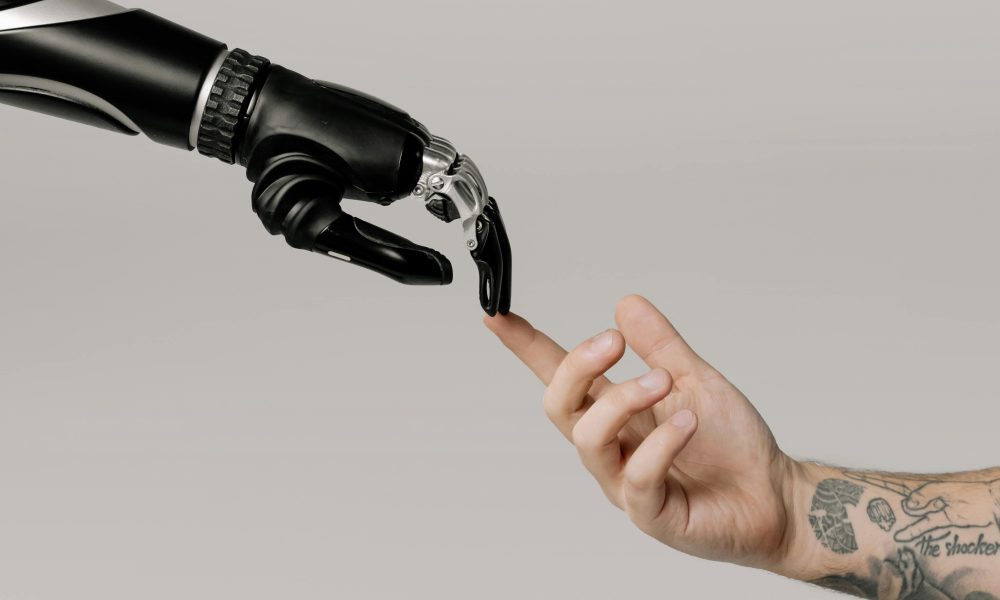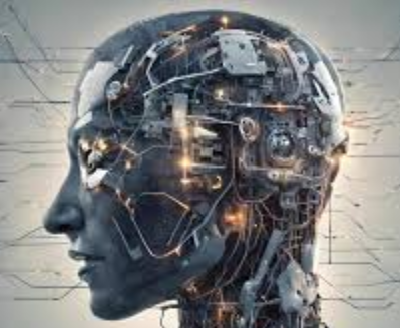Don’t Worry, Artificial Intelligence Isn’t Taking Over the World Anytime Soon
With recent advancements in digital technology, artificial intelligence is reaching startling new heights. While high-end deepfake technology has been around for nearly a decade, AI has evolved since then to have fluid discussions, provide a near-perfect replication of someone’s voice, and even be assimilated into student life, serving as a method for tired high school students to avoid writing their essays. Additionally, according to CBS news, generative AI technology is projected to automate nearly 30% of work hours in the US by 2030, where lower-wage jobs in the food industry and customer service are 14 times as likely to be eliminated as other roles.
I know what you’re thinking: Doesn’t all this mean we should be afraid of artificial intelligence? What about our jobs, especially ones that don’t require a fancy degree? Our personal and internet safety? Couldn’t an AI-takeover be imminent?!
Well, no. If we’re smart about it, AI won’t be taking over the world anytime soon. But the future isn’t as clear-cut as it may seem, and if history has told us anything, the rapid progression of artificial intelligence is something to be wary of nonetheless.
The concept of artificial intelligence originated among scientists and mathematicians in the early 1950’s, but wasn’t put into practice until the Dartmouth Conference around 1956, where the term was originally coined by computer scientist John McCarthy. For the next 20 years, AI research and funding flourished, with computers becoming more accessible and machine learning algorithms improving significantly. According to an article by the AI World Society (AIWS), American computer scientist Marvin Minsky told Life Magazine in 1970 that “from three to eight years we will have a machine with the general intelligence of an average human being.”
Though there were setbacks — like accessibility and weak computer storage — artificial intelligence has continued to prosper over the decades. In recent years, software such as ChatGPT have exploded in what’s called the AI boom, beginning in the late 2010s and gaining international prominence in the early 2020s. Alas, with rapid change comes growing fear, and artificial intelligence has been no different. According to Pew Research Center, Americans lean toward concern over excitement when it comes to the increased use of AI in daily life. Many are worried that AI will negatively impact their life through means such as fraud committed in their name through using deepfake tech.
The reason why the history of artificial intelligence is so important to its theoretical world domination is because it tells us something important: automation, especially through AI, can take over jobs, but not completely. I challenge you to go to your local grocery store and observe its checkout area. What you’ll notice is that most often, there’s a mix of self-checkout areas and checkout with staff, often more of the latter. What you don’t usually see is a store solely with self-checkout aisles, and no staff, even though self-checkout was created nearly 40 years ago. With the rapid advancement of AI, it’s easy to get caught up in the fear of it completely taking over our lives, but automated machines like self-checkout prove that these kinds of machines don’t wipe human job opportunities completely off the market.
Now, this isn’t to say that AI won’t be automating many jobs in the job market. Many will still be affected. Media publisher Built In predicted that up to ten or more popular jobs could be largely replaced by AI within the next five to ten years — ones with surprisingly varying skill sets, ranging from customer service representatives to graphic designers. Although many jobs will be automated, many more will be created, largely thanks to AI. Back in 2023, Forbes magazine presented 20 new and enhanced roles that AI will create, proposing that the increase in utilization of artificial intelligence will demand an increase in jobs relating to the ethics and training of these systems to improve its social, artistic, credible, and security capabilities. So, these jobs wouldn’t exclusively be for computer programmers. Some experts have argued that there are jobs that AI simply won’t replace, or at least not anytime soon. These include jobs that require trust and human emotion, something that even the best AI technology struggles to replicate, which would cover jobs like being a social worker or a nurse.
There is no doubt that artificial intelligence will continue to change the world, and will stretch far beyond its current limits in the coming years. With every leap and stride humanity makes in regards to technological innovation, it is only right to be wary of misuse and corruption. Artificial intelligence is no different, but if instituted with care and adherence to the needs of the general public, it can serve as a tool to create and enhance the job market and citizens’ daily life. Implementing it in a way like self-checkout, so it doesn’t completely take over the jobs of dedicated workers, is just one way to leave space for humanity in the future of technological development.










